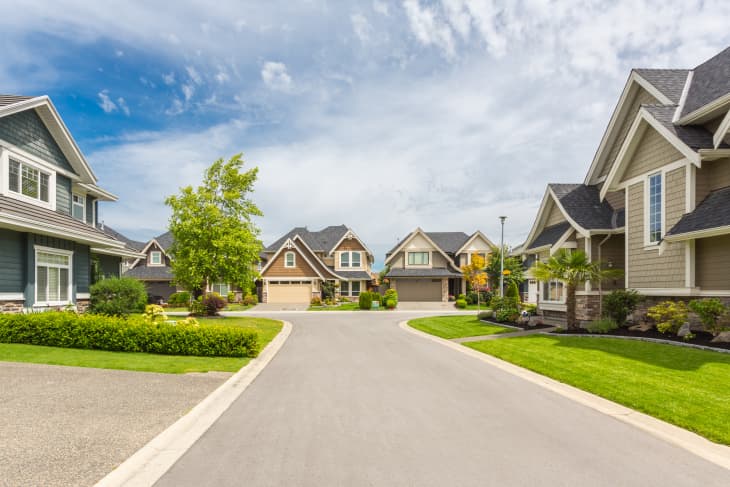The One Piece of Real Estate Advice My Mom Gets All Wrong

When I was growing up, I received and internalized countless messages about the “right” way to spend money, to invest, and to live. It’s incredibly common for generations to pass down the advice that worked for themselves to younger generations — but the fact is, finances change. There’s a lot of advice given without regard to the way the market has shifted.
One piece of advice I frequently received from my mom when I was growing up — and still get today — is that it’s always a better investment to buy a home rather than to rent. At first glance, this seems wise. If you’ve ever heard someone reduce this advice to “Don’t pay someone else’s mortgage,” then you probably have considered swapping out the title of tenant to that of homeowner.
But in a shifting market with rising inflation and an average mortgage rate of over 7 percent, I don’t really believe that buying is always a better investment than renting — especially where I live in San Diego. (Sorry, Mom!)
For one, it’s no secret that millennials experience more financial hardship than generations before; buying simply isn’t possible for many adults. According to a recent report from Redfin, nearly one in five millennials and 12 percent of Gen Zers believe that they will never own a home. Numerous social and economic factors have contributed to this pessimistic view, including the rising cost of homes, a housing supply that cannot keep up with demand, an increasing home price to income ratio, and stagnant wages.
According to data pulled from Zillow, the monthly cost of renting is cheaper than the monthly mortgage bill in 26 of the 50 largest metro areas in the United States. In 12 metro areas, typical monthly rents are about the same as typical monthly mortgage payments. And in the remaining 14 metro areas, typical monthly mortgage payments are lower than typical monthly rents.
“Buyers need to understand all the costs that come with homeownership,” Amanda Pendleton, Zillow’s home trends expert, told Apartment Therapy. “Zillow research finds the typical homeowner can expect to pay an extra $1,180 every month for property taxes, insurance, utilities, and maintenance costs — on top of their monthly mortgage payment.”
Renting, on the other hand, has little to no hidden costs. Tenants may be responsible for their monthly utilities, but taxes, maintenance, repairs, and HOA fees fall on the homeowner. (The cost of renting does, however, typically increase over time, while a monthly mortgage rate tends to stay the same over the 30 years it takes to repay.)
My mom experienced a very different housing market than the one I’m in now. In 1990, when she was looking to purchase a home, the national home price to income ratio was about 4.62 — meaning the median home price was about 4.62 times the median household income. That number has fluctuated in the last 30 years, but since the pandemic began it has spiked. Today the ratio is 7.4 — making it (yet again) much harder to buy. And because so many Boomers and Gen Xers purchased homes decades ago, it’s difficult for parents to put themselves in the shoes of their adult children struggling to enter the housing market.
“Buying is not always better than renting,” says Francine Huss, a Sotheby’s Real Estate agent in Sonoma, California. “But when it is, it can be much better. The answer lies not so much in the market, but in the needs, priorities, and goals of the one asking the question.”
For many people, buying is not just about no longer paying for someone else’s mortgage. It’s also about making an investment in their way of life. Homeowners often have more freedom in the style of their home, making structural changes that suit their needs, and can justify making updates that will improve the quality of their abode.
In my case, choosing not to buy isn’t just a cost-saving maneuver — it’s a better lifestyle choice for me right now. I prefer the flexibility of renting, despite my mom’s advice. I’d rather not deal with maintaining a house at this point in my life, and I’m not ready to put down very expensive roots in San Diego without a plan. (The Boomers out there can appreciate wanting to have a plan, right?)
“The decision to buy or rent is going to be deeply personal, and has as much to do with your lifestyle as it does with your finances,” Pendleton says.
Still, she acknowledges the benefits of buying for some people. “Owning a home is a big part of building long-term wealth,” Pendleton adds. “A home is an important asset because of what it is; it’s a piece of the earth that you own and there’s only so much of that to go around. For that reason, homes tend to go up in value over time.”
So yes, buying a home can still be a good investment. It’s just not the only way to invest in living, and I certainly don’t feel pressure to do so just because past generations thought it was a better way to spend money.